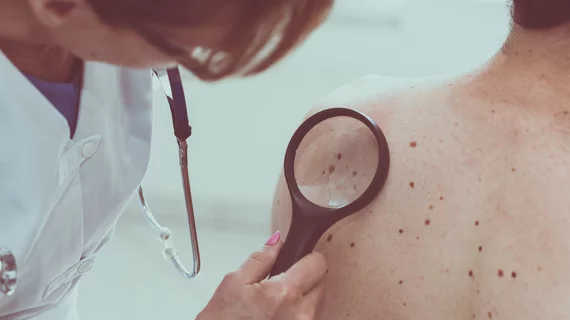Moderna, Merck say new combination treatment boosts skin cancer survival
An experimental mRNA vaccine from Moderna and Merck is creating some buzz for its ability to reduce the risk of recurrence or death from skin cancer.
Moderna and Merck, both U.S.-based pharmaceutical companies, recently announced results from a phase 2b trial evaluating mRNA-4157 (V940), an investigational individualized neoantigen therapy (INT), in combination with Keytruda, an antibody used in cancer immunotherapy owned by Merck. The results showed a 44% reduction in the risk of recurrence or death in patients with resected high-risk melanoma (stage III/IV).
Skin cancer is the most common form of cancer in the United States, with roughly 9,500 people diagnosed every day, according to the American Academy of Dermatology (AAD) Association. In addition, more than 1 million Americans are living with melanoma.
The study results come after Moderna accused other pharmaceutical companies of stealing its mRNA technology for the COVID-19 vaccine. Moderna created one of three COVID-19 vaccines approved for use in the United States. The company has since created vaccines for COVID-19 subvariants as well.
Moderna plans to present the findings of its latest skin cancer trial during the American Association for Cancer Research (AACR) Annual Meeting 2023.
"Today's results provide further encouragement for the potential of mRNA as an individualized neoantigen therapy to positively impact patients with high-risk resected melanoma," Kyle Holen, MD, Moderna's senior vice president and head of development, therapeutics and oncology, said in a statement. "The profound observed reduction in the risk of recurrence-free survival suggests this combination may be a novel means of potentially extending the lives of patients with high-risk melanoma. We look forward to starting the Phase 3 melanoma trial soon and expanding testing to lung cancer and beyond."
In the study, 107 patients received the vaccine in combination with Keytruda, while 50 patients were treated with just Keytruda. Recurrence or death was reported in 22.4% of patients in the combination arm compared with 40% of patients who received Keytruda alone with a median follow-up of 23 and 24 months, respectively.
Moderna and Merck have been granted Breakthrough Therapy Designation from the U.S. Food and Drug Administration (FDA) and PRIME scheme from the European Medicines Agency for the vaccine, mRNA-4157 (V940), in combination with Keytruda for the adjuvant treatment of patients with high-risk melanoma following complete resection.

